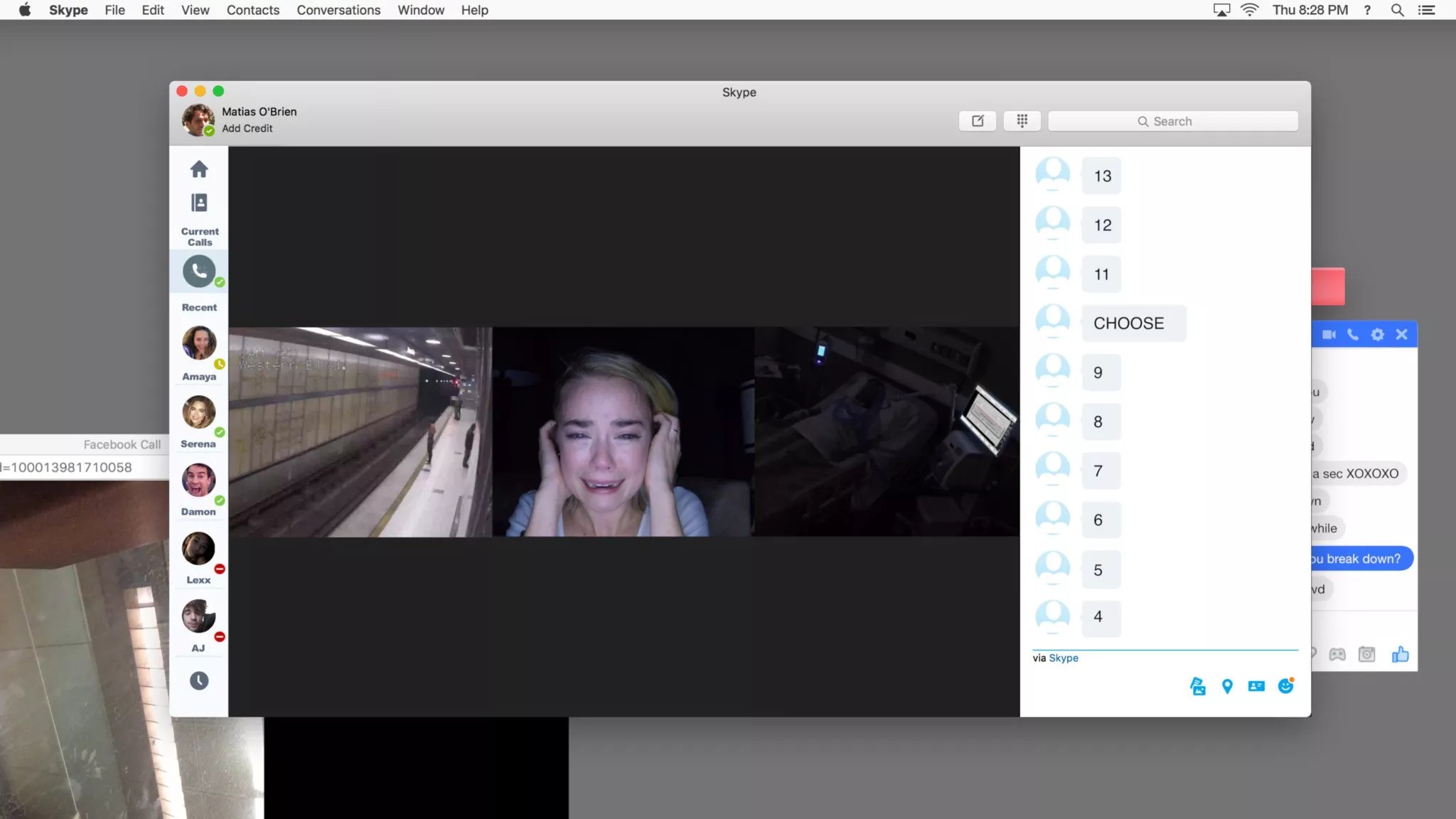
Courtesy of BH Tilt

Audio By Carbonatix
My mind reels whenever well-intentioned adults, often teachers and parents, post some photo to social media with a request that the world like it and share it, so that the adult can make a point to some young people about how rapidly information – and misinformation – can spread online. “Everyone should know that already!” my brain screams. Just as everyone should know, for instance, to place a little bit of tape over the camera in your laptop? (I realize, as I type, that I’ve not yet done that myself.) With Unfriended: Dark Web, a follow-up to the 2014 found-footage transtextual horror film Unfriended, writer/director Stephen Susco is betting we’re all a little willfully naive about the internet. The film sounds a warning that will be news to exactly nobody: that the web isn’t just GIFs of tiny dogs getting a blowout at the salon; it’s also a place where, as in the movie’s story, nefarious characters buy and sell illegal goods and services, and anyone at any time can gain access to your most personal information.
Here, Susco dutifully exploits the fear of being surveilled, as seven friends convening for a Skype-in game night realize that one of them, Matias (Colin Woodell), is using a stolen computer laden with disturbing videos of torture videos and owned by a person going by the name Charon IV, who traffics in such darkness. The group is supposed to be playing a few rounds of Cards Against Humanity when Matias receives a series of cryptic Facebook messages and an order to move the conversation onto a secure platform called The River. As in the first film, we see all of this play out as though Matias’ computer screen is our movie screen, and Susco never strays from that format, finding ingenious ways to incorporate cinematic devices like reaction shots by layering windows. But for all its inventive and impressive technique, the film lacks fun; a lot of folks, myself included, need very little reminding that the internet is a threat and that terrible men are actively out there abducting and terrorizing girls and women for lulz.
Still, a handful of scenes did deeply affect me and suggest that this film could be more than one-note horror. In one lengthy section, Matias is told privately by Charon IV to pretend to his friends that the torture videos and information they just saw on The River (via Matias using a screen-sharing function) isn’t actually real, that it’s all part of a game that Matias had designed. Matias painstakingly keeps up the charade right up until Charon IV seems briefly to lose the connection. Unobserved, for just a moment, Matias spits out the truth and instructs them all to carry on with game night as if they didn’t know anything. What follows is the tensest, most emotional round of Cards Against Humanity you’ll ever find, as the gang barely keeps it together, trying to conjure up comedy while facing terror. It’s the most successful scene in the film, blending dread with a dash of wry humor that’s missing elsewhere.
As with most horror films, the cast gets whittled down one by one by the killer, in this case, a cabal of folks in black hoods capable of showing up at the characters’ homes at a moment’s notice – they’re maniacally smart, always 10 steps ahead of the gang. We view the deaths via hacked phone and security cam footage that shows up on Matias’ desktop. Susco is limited by how he can shoot the scenes and characters, and that’s one potential reason for the prevailing glumness. It’s more miserable than pleasurable to watch close-ups of panicking people capturing their suffering on their own cameras.
Worse, this is also a movie that inadvertently glorifies hacker chaos trolls and criminals as hyper-intelligent masterminds, who win in the end against a bunch of hapless normos – it’s fairly easy to see 8chan scum celebrating the climax, here. Maybe this just isn’t the time for this Unfriended, which features a cameo from YouTube lulz-king Jake Paul that plays a wink-nudge confirming the filmmakers’ ambivalence about the real-life harassment and terrors their movie caricatures.
Susco is a skilled and clever scenarist and director able to achieve interesting effects within strict visual parameters – an absolute feat. The truth is that horror movies – though my love runs deep for them – will always walk a fine line between provocative fun and de facto endorsement of violence. Susco’s film is never quite the latter, but it also never gives me reason to be confident that I’m in the hands of a creator who has a sound grasp of the implications of his creation.